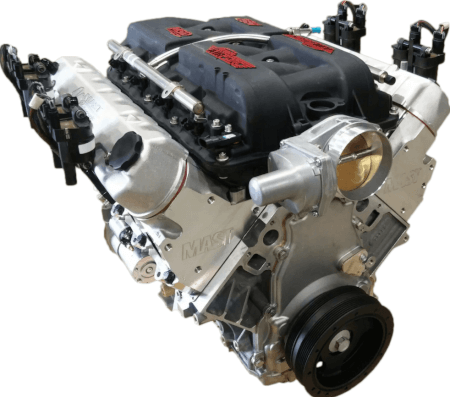Fiberglass Car Bodies Manufacturers: Shaping the Future of Lightweight Automotive Design
In an era where performance, efficiency, and innovation drive the automotive industry, fiberglass car bodies manufacturers play a crucial role in shaping the future. The use of fiberglass in automotive body design has surged due to its unique combination of lightweight properties, structural integrity, and cost-effectiveness. As automakers and specialty builders search for advanced materials to enhance performance and design flexibility, fiberglass remains a preferred solution—especially for racing, custom builds, and specialty vehicles.
Why Fiberglass?
Fiberglass, also known as glass-reinforced plastic (GRP), is
a composite material made from woven glass fibers and resin. Unlike metal or
carbon fiber, fiberglass offers a balance between affordability and strength,
making it an ideal material for low- to mid-volume vehicle production.
For manufacturers, this means more freedom in designing
complex shapes, streamlining tooling processes, and reducing the overall weight
of the vehicle. For customers, especially in motorsports or performance
customization, fiberglass delivers tangible benefits—quicker acceleration,
better fuel efficiency, and easier repairs in the event of damage.
The Role of Specialized Manufacturers
Fiberglass car bodies manufacturers serve a
unique and vital segment of the automotive industry. These companies specialize
in designing, molding, and producing full body panels or individual components
using advanced fiberglass techniques. Their expertise often extends beyond
fabrication—they collaborate with design engineers, prototyping teams, and
automotive brands to ensure every panel meets rigorous performance, safety, and
aesthetic standards.
Whether it’s replicating a vintage classic or building a
modern racecar shell from the ground up, these manufacturers offer unmatched
versatility. Custom car builders, race teams, restoration specialists, and even
educational institutions rely on fiberglass specialists to bring creative
automotive visions to life.
Innovation in Production
Modern fiberglass body manufacturing is not what it was a
decade ago. Today, it involves precision mold-making, computer-aided design
(CAD), vacuum bagging, and resin transfer molding (RTM). These advancements
have improved the consistency, strength-to-weight ratio, and surface finish of
fiberglass car bodies.
Leading manufacturers invest heavily in R&D to improve
structural performance, reduce emissions during production, and integrate with
hybrid or electric drivetrains. This progressive mindset helps them remain
competitive in a market that demands both performance and environmental
responsibility.
Benefits for Niche and Performance Markets
One of the standout advantages of fiberglass is its ability
to support niche vehicle production. Unlike steel or aluminum, which require
expensive stamping dies and industrial-grade equipment, fiberglass molds are
significantly more economical. This lowers the barrier to entry for small
businesses, startups, and racing teams looking to produce limited-run vehicles
or prototype shells.
Motorsports applications particularly benefit from
fiberglass bodies. Lighter vehicles accelerate faster, handle more
responsively, and are easier to repair after collisions. As racing continues to
push the limits of engineering, fiberglass manufacturers remain essential
partners in achieving the delicate balance between strength, flexibility, and
weight.
Sustainability and Efficiency
The conversation around sustainable materials is growing,
and fiberglass manufacturers are responding. Innovations in bio-based resins,
recyclable composites, and closed-loop production systems are gaining traction.
While fiberglass is not as eco-friendly as some natural materials, its
longevity and reusability make it a responsible choice in long-term
applications.
Some manufacturers also participate in lifecycle
programs—taking back old panels for recycling or offering trade-in programs to
reduce waste. As sustainability becomes a bigger priority for the automotive
sector, these efforts signal a commitment to responsible manufacturing.
Choosing the Right Manufacturer
Not all fiberglass car bodies manufacturers are
created equal. When selecting a partner, key factors include:
- Experience
and Reputation: A proven track record with high-performance or
custom projects.
- Material
Quality: Use of top-grade resins and fibers for optimal
performance and durability.
- Customization
Capability: Ability to accommodate one-off builds or
modifications.
- Delivery
Time and Support: Reliable lead times and after-sales support for
repairs or replacements.
- Compliance: Adherence
to automotive safety and quality standards.
Clients should also consider whether the manufacturer offers
in-house design services or collaborates with engineering firms. A more
integrated process can lead to better results and reduced costs over time.
Looking Ahead
As automotive design evolves—with increased interest in
electric vehicles, modular construction, and aerodynamic optimization—fiberglass
car bodies manufacturers are poised to expand their influence. Their
role goes far beyond fabrication; they are creative partners in performance
innovation.
In racing, restoration, prototyping, and specialty car
building, fiberglass continues to deliver where it counts. The future of
lightweight vehicle design depends on materials that are both agile and
adaptable—and fiberglass stands ready to meet the challenge.

Comments
Post a Comment